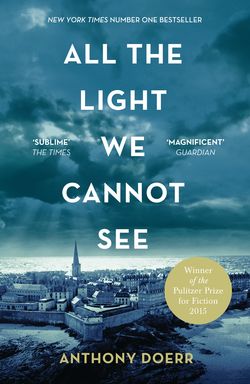Читать книгу All the Light We Cannot See - Anthony Doerr, Anthony Doerr - Страница 32
Bigger Faster Brighter
ОглавлениеMembership in the State Youth becomes mandatory. The boys in Werner’s Kameradschaften are taught parade maneuvers and quizzed on fitness standards and required to run sixty meters in twelve seconds. Everything is glory and country and competition and sacrifice.
Live faithfully, the boys sing as they troop past the edges of the colony. Fight bravely and die laughing.
Schoolwork, chores, exercise. Werner stays up late listening to his radio or driving himself through the complicated math he copied out of The Principles of Mechanics before it was confiscated. He yawns at meals, is short-tempered with the younger children. “Are you feeling okay?” asks Frau Elena, peering into his face, and Werner looks away, saying, “Fine.”
Hertz’s theories are interesting but what he loves most is building things, working with his hands, connecting his fingers to the engine of his mind. Werner repairs a neighbor’s sewing machine, the Children’s House grandfather clock. He builds a pulley system to wind laundry from the sunshine back indoors, and a simple alarm made from a battery, a bell, and wire so that Frau Elena will know if a toddler has wandered outside. He invents a machine to slice carrots: lift a lever, nineteen blades drop, and the carrot falls apart into twenty neat cylinders.
One day a neighbor’s wireless goes out, and Frau Elena suggests Werner have a look. He unscrews the back plate, waggles the tubes back and forth. One is not seated properly, and he fits it back into its groove. The radio comes back to life, and the neighbor shrieks with delight. Before long, people are stopping by Children’s House every week to ask for the radio repairman. When they see thirteen-year-old Werner come down from the attic, rubbing his eyes, shocks of white hair sticking up off his head, homemade toolbox hanging from his fist, they stare at him with the same skeptical smirk.
The older sets are the easiest to fix: simpler circuitry, uniform tubes. Maybe it’s wax dripping from the condenser or charcoal built up on a resistor. Even in the newest sets, Werner can usually puzzle out a solution. He dismantles the machine, stares into its circuits, lets his fingers trace the journeys of electrons. Power source, triode, resistor, coil. Loudspeaker. His mind shapes itself around the problem, disorder becomes order, the obstacle reveals itself, and before long the radio is fixed.
Sometimes they pay him a few marks. Sometimes a coal mother cooks him sausages or wraps biscuits in a napkin to take home to his sister. Before long Werner can draw a map in his head of the locations of nearly every radio in their district: a homemade crystal set in the kitchen of a druggist; a handsome ten-valve radiogram in the home of a department head that was giving his fingers a shock every time he tried to change the channel. Even the poorest pit houses usually possess a state-sponsored Volksempfänger VE301, a mass-produced radio stamped with an eagle and a swastika, incapable of shortwave, marked only for German frequencies.
Radio: it ties a million ears to a single mouth. Out of loudspeakers all around Zollverein, the staccato voice of the Reich grows like some imperturbable tree; its subjects lean toward its branches as if toward the lips of God. And when God stops whispering, they become desperate for someone who can put things right.
Seven days a week the miners drag coal into the light and the coal is pulverized and fed into coke ovens and the coke is cooled in huge quenching towers and carted to the blast furnaces to melt iron ore and the iron is refined into steel and cast into billets and loaded onto barges and floated off into the great hungry mouth of the country. Only through the hottest fires, whispers the radio, can purification be achieved. Only through the harshest tests can God’s chosen rise.
Jutta whispers, “A girl got kicked out of the swimming hole today. Inge Hachmann. They said they wouldn’t let us swim with a half-breed. Unsanitary. A half-breed, Werner. Aren’t we half-breeds too? Aren’t we half our mother, half our father?”
“They mean half-Jew. Keep your voice down. We’re not half-Jews.”
“We must be half something.”
“We’re whole German. We’re not half anything.”
Herribert Pomsel is fifteen years old now, off in a miners’ dormitory, working the second shift as a firedamper, and Hans Schilzer has become the oldest boy in the house. Hans does push-ups by the hundreds; he plans to attend a rally in Essen. There are fistfights in the alleys, rumors that Hans has set a car on fire. One night Werner hears him downstairs, shouting at Frau Elena. The front door slams; the children toss in their beds; Frau Elena paces the parlor, her slippers whispering left, whispering right. Coal cars grind past in the wet dark. Machinery hums in the distance: pistons throbbing, belts turning. Smoothly. Madly.
